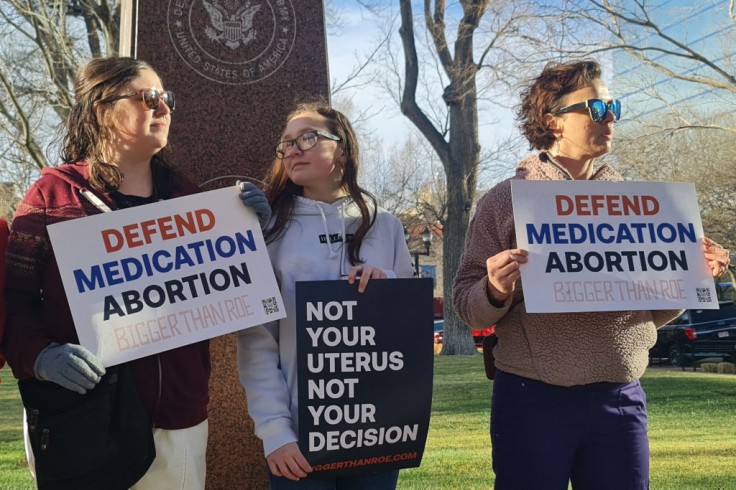
The legal battle for access to the abortion pill Mifepristone continues as it faces another threat of a total ban.
The ongoing legal battle over access to the mifepristone abortion pill has reached the US Supreme Court, following opposing rulings from federal judges in Texas and Washington state.
The Texas judge, Matthew J. Kacsmaryk, ordered a hold on the approval of the drug, which has been used in most abortions for over 20 years.
In contrast, Judge Thomas O. Rice of the Eastern District of Washington State issued a competing ruling, preserving access to the drug in 17 states.
The conflicting decisions are likely to escalate the issue to the highest court in the land.
Texas Judge Orders Hold on Mifepristone Approval
In a 67-page opinion, Judge Kacsmaryk halted the FDA's approval of mifepristone, marking the first time a court has suspended approval of an FDA-approved medication that has been on the market for decades.
The decision could limit access to the drug for millions of women in the US, threatening to upend the entire foundation of America's drug regulatory system.
The US Department of Justice confirmed on Friday night that it would challenge the ruling, and it will not go into effect for seven days, pending an appeal.
Kacsmaryk's ruling could also be a catalyst for anti-abortion rights groups seeking a nationwide federal ban on all abortions.
According to The Atlantic, it is an open invitation to use the Comstock Act, a law passed 150 years ago and rarely enforced in the past century, to achieve their goal.
The recent ruling has the capacity to impact pregnant individuals throughout the country, even in states controlled by Democrats, who have emphasized the importance of accessible abortions.
This ruling has shifted the focus of the ongoing debate on abortion in the US towards abortion pills, particularly mifepristone, which has become a recent target for the anti-abortion rights movement.
Washington Judge Preserves Access to Mifepristone
In contrast, Judge Rice's ruling preserved access to the drug in 17 states, including California, New York, and Washington.
The decision means that the drug can still be provided via telemedicine and mail, a critical option during the pandemic when many clinics have been forced to close or reduce their services.
The judge's ruling is a significant victory for abortion-rights advocates, who have argued that the drug is safe and effective and that women should have the right to choose the method of abortion that suits them best.
However, if the ban ordered by Kacsmaryk ultimately takes effect, some parts of the country could be hit particularly hard.
Furthermore, according to Politico, an analysis by the Guttmacher Institute found that abortion clinics in 2% of US counties only offer abortion pills and don't have a procedural option.
Guttmacher estimates the decision could impede access for at least 2.4 million people.
Some of the states set to be most impacted, including New Mexico, Pennsylvania, and Colorado, are serving their own residents and a large influx of patients from neighboring states with more restrictions.
In the event that mifepristone is prohibited, certain abortion providers have declared their intention to switch to prescribing only the second pill in the two-pill treatment, known as misoprostol.
This drug is subjected to fewer limitations due to its usage in treating various conditions, like stomach ulcers, rather than solely for abortions.
Furthermore, in the 67-page opinion, Judge Matthew Kacsmary also gave the Biden administration seven days to appeal the decision to the U.S. Court of Appeals for the 5th Circuit.
This means that the judge's ruling will not take effect for seven days, giving the government time to appeal.
According to CBS, the Biden administration responded promptly by filing its notice of appeal late Friday night.
This notice of appeal is the administration's formal way of asking the higher court to review the judge's decision and potentially overturn it.
In the meantime, women's reproductive rights are once again under threat, with millions potentially facing limited access to safe and effective abortion care.